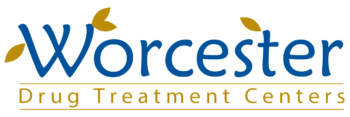Relapse Prevention Programs in Worcester, MA
What many people are not aware of is that addiction is not just a mental issue or a matter of control or willpower. It is actually a chronic and relapsing disease. This means that addiction has no cure as of yet and it is recurrent, meaning that it will go into remission and can recur if a person abuses drugs or alcohol again after treatment. Of course, the primary goal of any high-quality drug or alcohol addiction treatment program is relapse prevention. As such, relapse prevention programs are of the utmost importance when choosing and engaging in addiction treatment.
Understanding Relapse Prevalence
In order to recognize the importance of relapse prevention programs, you need to understand just how common relapse is. According to the National Institute on Drug Abuse, anywhere between 40 and 60 percent of people who complete drug addiction treatment will relapse. In order to reduce these numbers and to make sure that you are not among that 40 to 60 percent, you need to be sure that relapse prevention programs are a major part of your addiction treatment and recovery.
How Relapse Works
There is a big difference between what is known as a lapse and a relapse. A lapse is an isolated incident in which a person consumes alcohol or drugs after they have completed their treatment. Relapse, on the other hand, is a process.
The relapse process can occur over the course of weeks or months and leads a person back down the path towards chronic compulsive substance abuse. Relapse occurs in three distinct stages, the first of which is emotional relapse. When a person emotionally relapses, they are experiencing negative thoughts, feelings, and engaging in habits that are essentially triggers for compulsive substance abuse related behaviors. This can include feeling such as anger and depression or can involve poor eating and sleeping habits.
The next stage in relapse is mental relapse. In this stage of the process a person’s mind begins to betray them in that they start to think about and glorify substance use and abuse and may even begin to plan future substance abuse. And the final stage of relapse is full-on substance abuse and a return to the compulsive behaviors the person engaged in when they were previously abusing drugs or alcohol.
Ways Relapse Prevention Programs Can Help
Relapse prevention programs are designed to help a person be able to recognize their personal substance abuse triggers and the issues that led them to develop an addiction in the first place. They also help a person to fully understand relapse and the signs that they may be in one of the early stages of relapse. Other steps that can be accomplished during treatment to prevent relapse include:
- Learning how to deal with discomfort
- Identifying self-destructive thoughts, behaviors, attitudes
- Replacing self-destructive tendencies with positive ones
- Developing written plans for dealing with triggers
- Develop a support system and find a support system when leaving treatment
- Find and cultivate hobbies to engage in rather than substance abuse
Worcester Drug Treatment Centers have numerous options when it comes to relapse prevention programs. All you need to do is contact them at (774) 221-6005 to get your addiction treatment and recovery process started.
